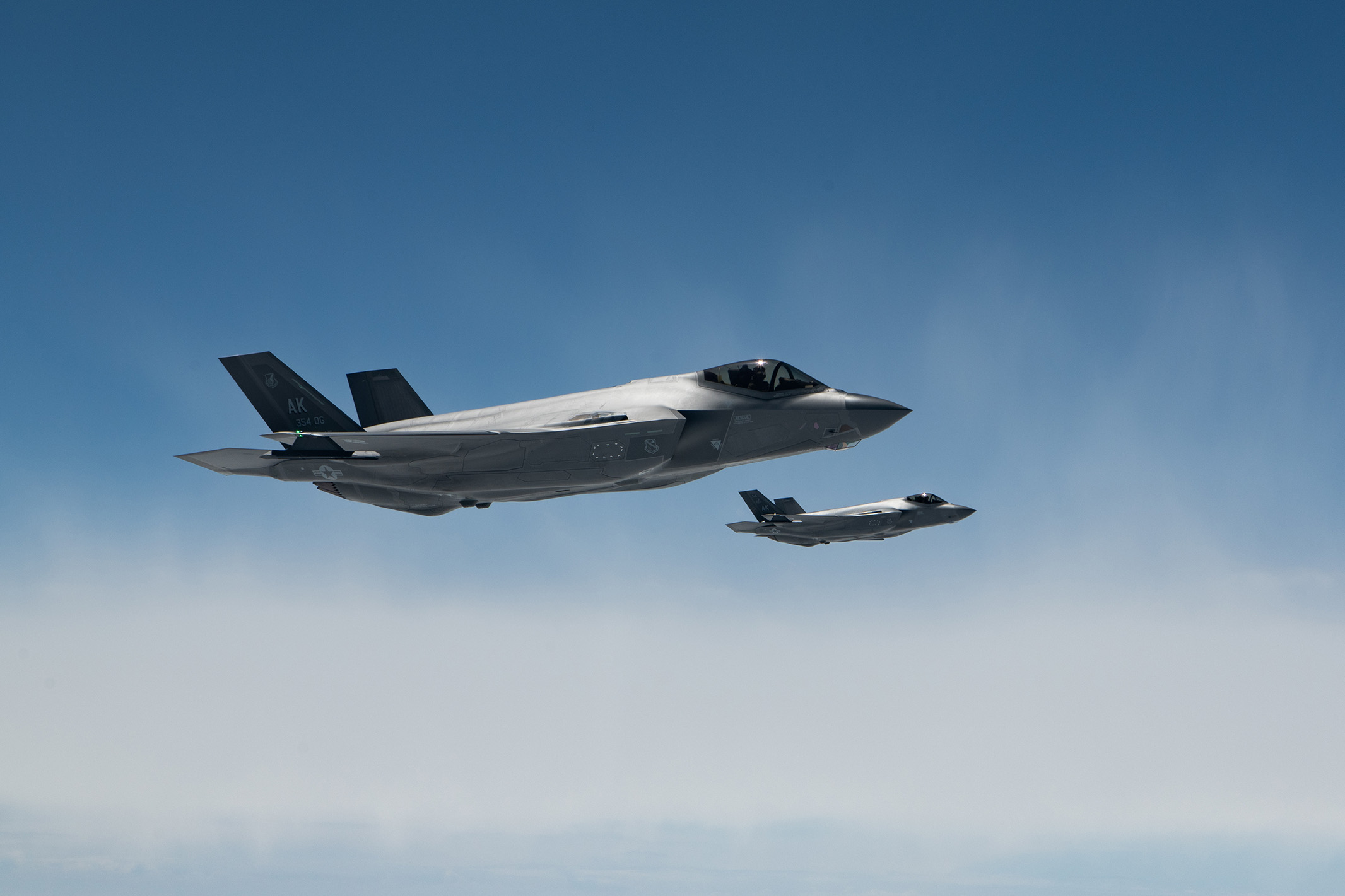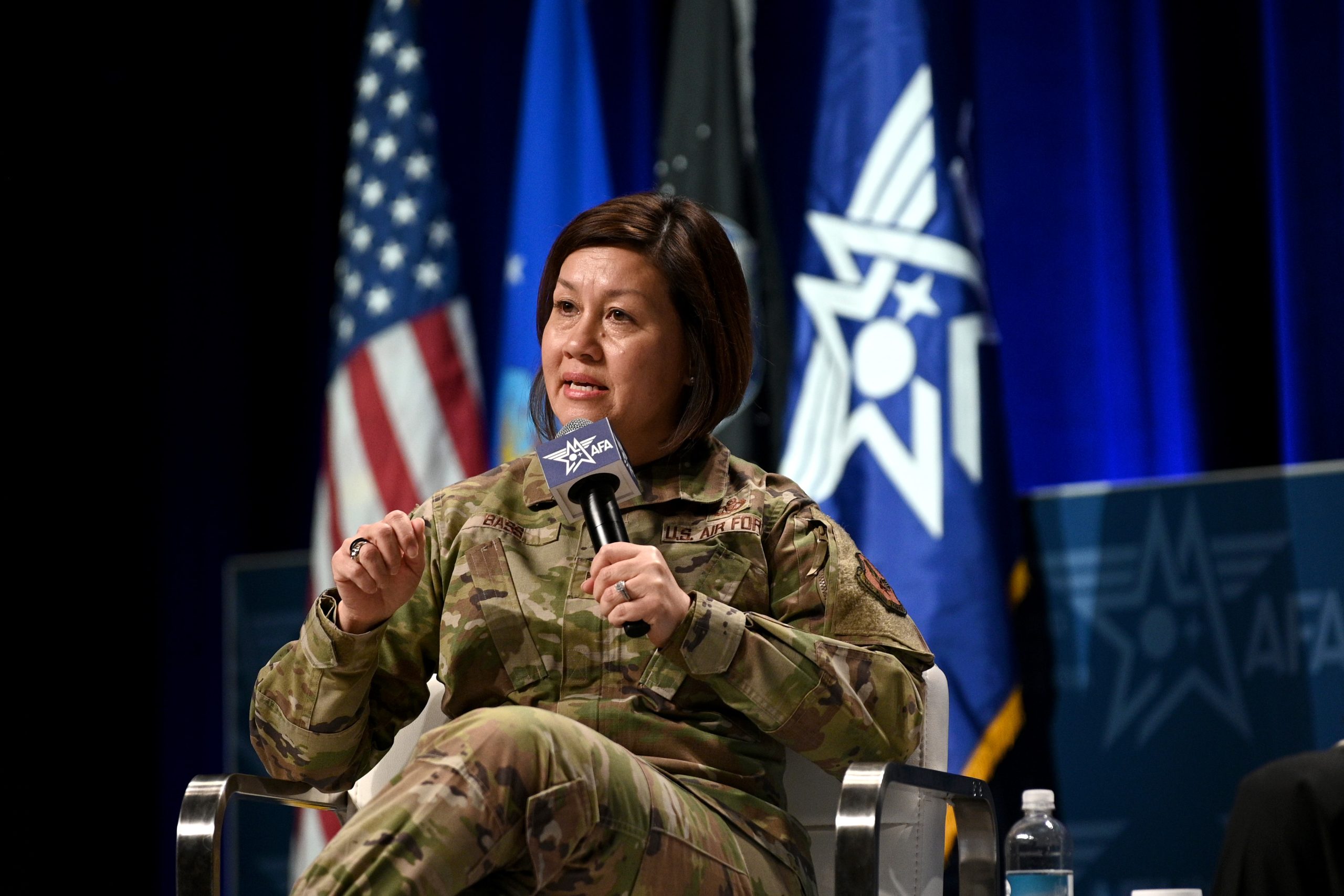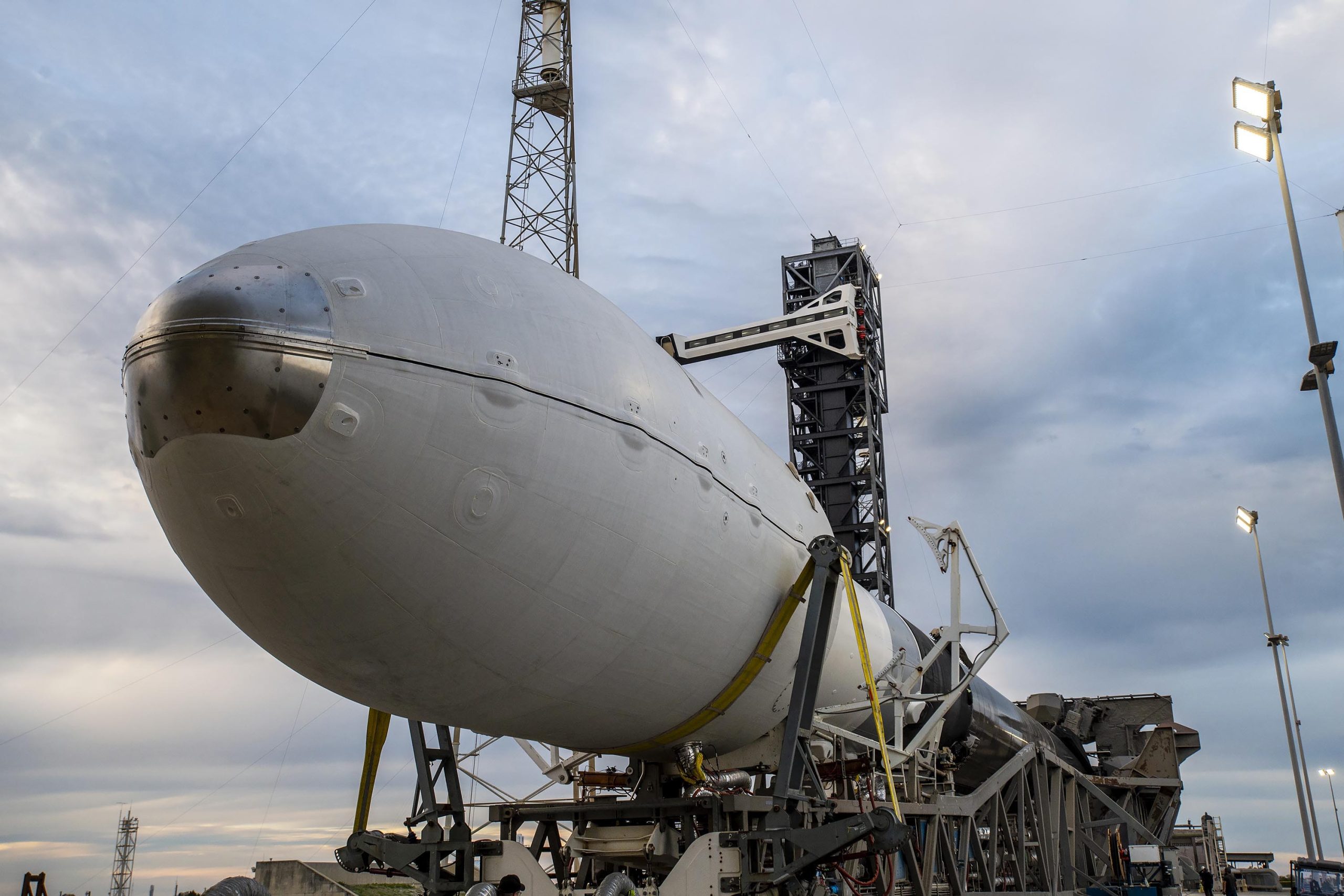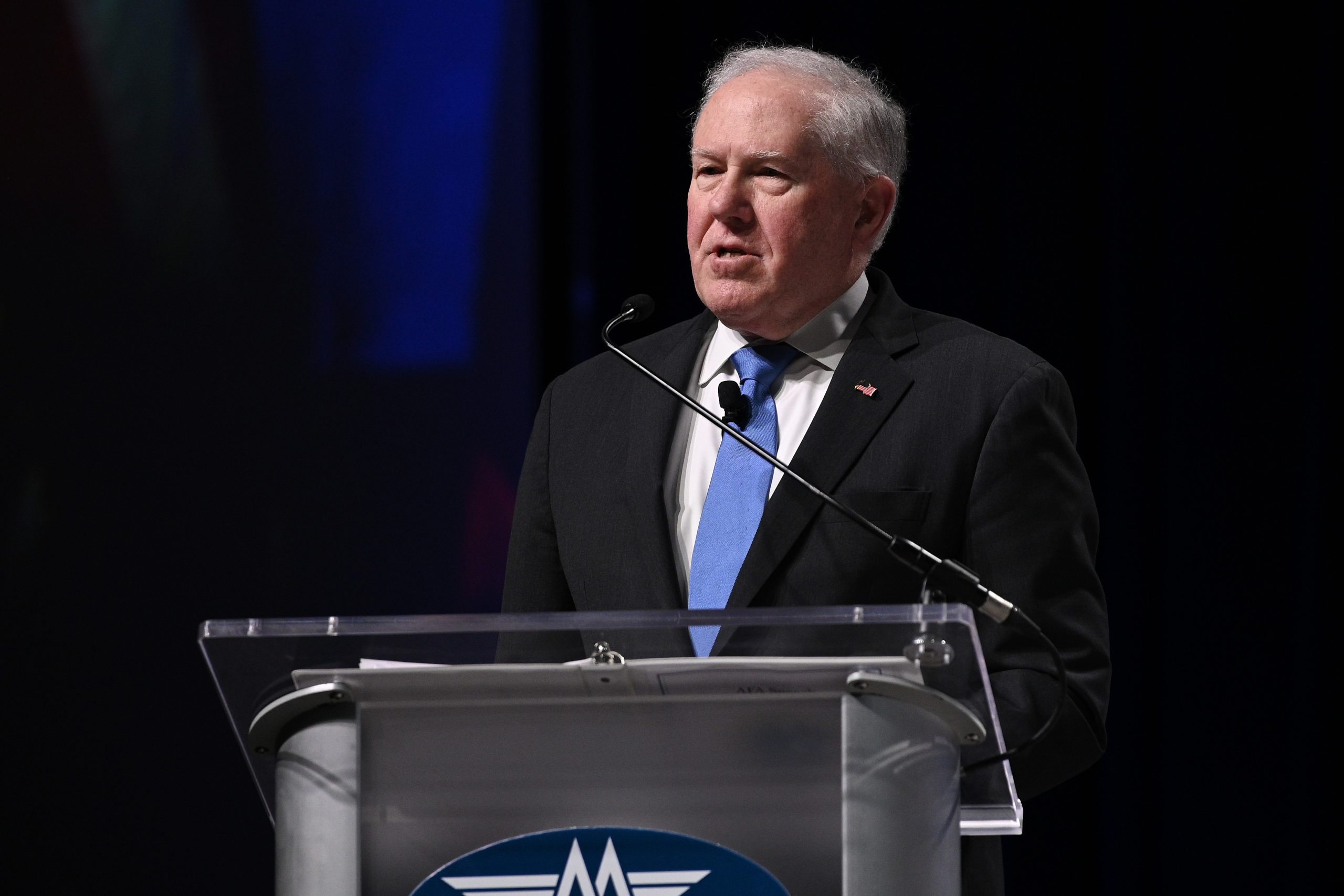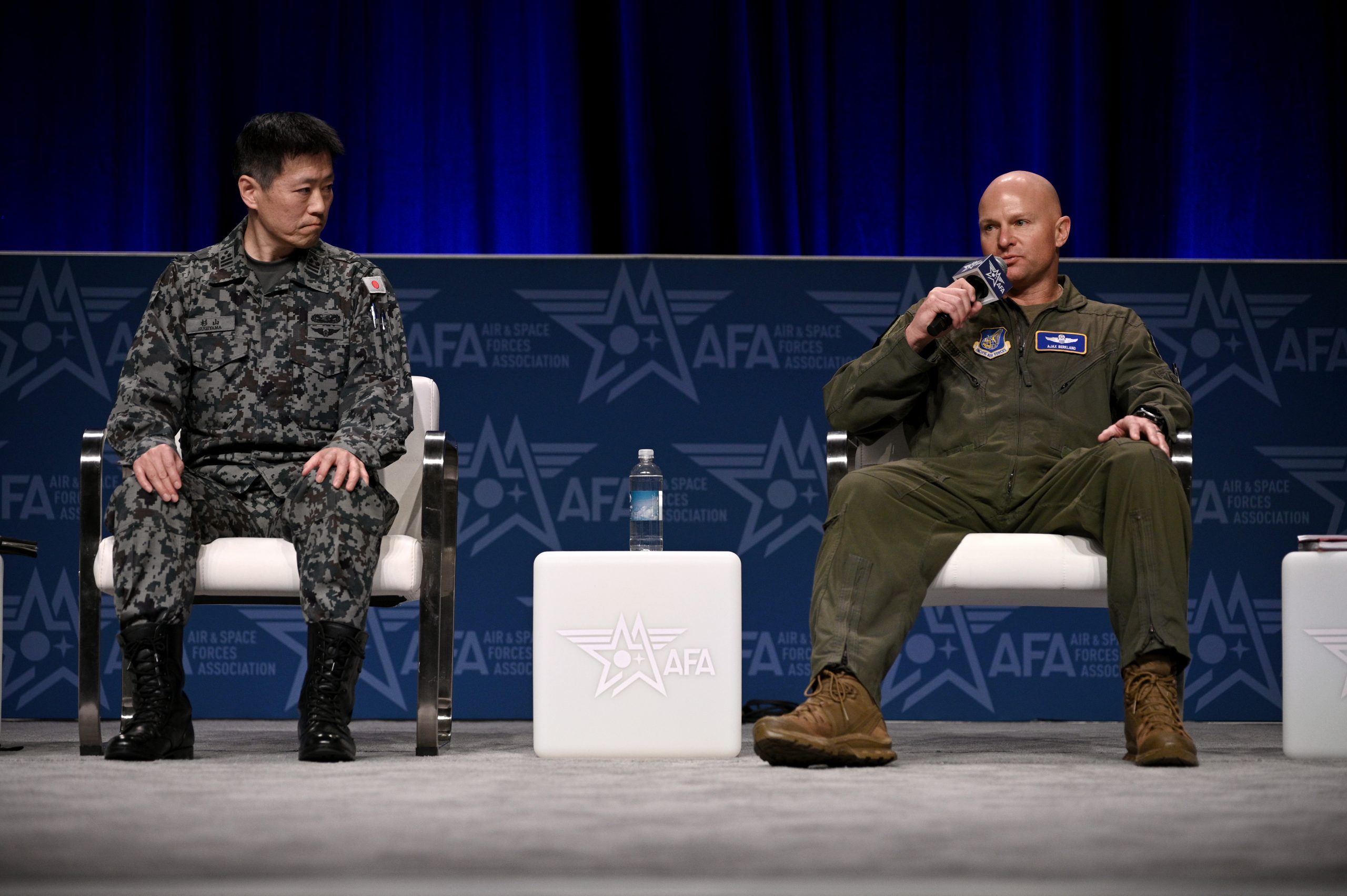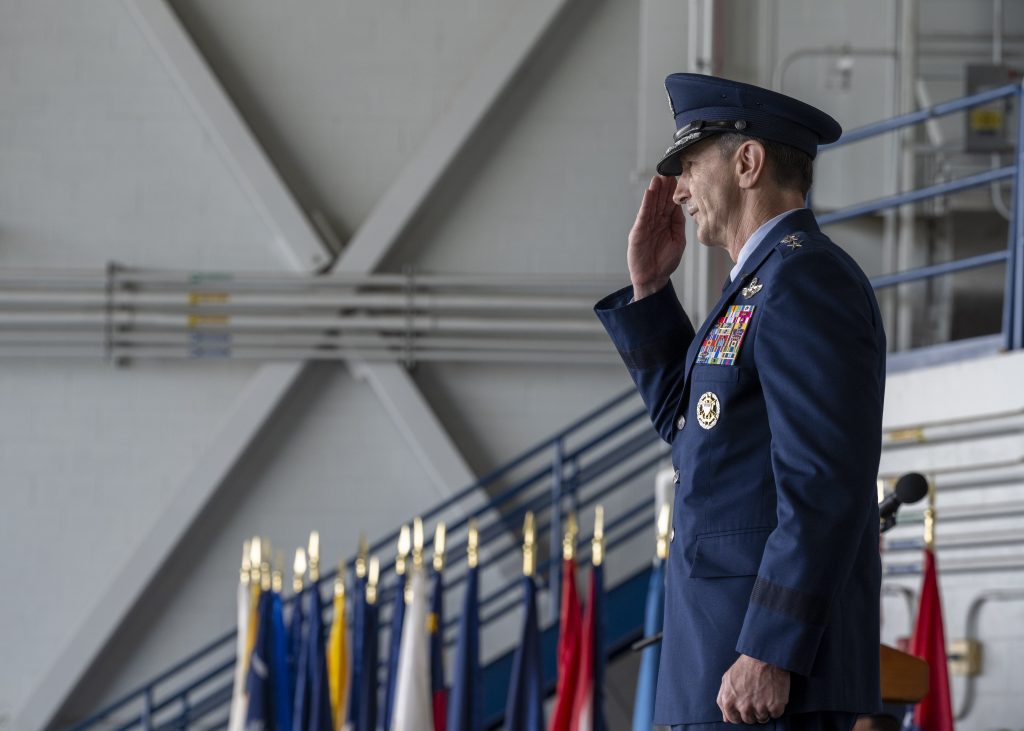AURORA, Colo.—Secretary of the Air Force Frank Kendall said Feb. 14 that Congress’s inability to enact critical government funding and national security legislation is “unthinkable” because it will delay military modernization at a pivotal time.
“These are historic times with a lot at stake on the table, both for our military and our continuous strategic competition as well as for the conflicts that are currently happening,” Kendall said. “It’s impossible to overstate the importance of doing these things.”
In the absence of a fiscal 2024 budget, the Pentagon has been operating under continuing resolutions, which largely keep spending frozen at the previous year’s levels and preclude new starts, though there have been carveouts for investments in America’s chronically delayed submarine construction.
CRs are designed as a short-term mechanism to prevent government shutdowns but have become commonplace amid Washington’s increased political infighting over the past decade or so.
The stopgap measure the government is operating under is “truly devastating” Kendall said in the closing session of the AFA Warfare Symposium.
According to a Department of the Air Force briefing document, a yearlong CR would represent an estimated eight percent cut in its budget absent inflation, reducing the Department of the Air Force’s buying power by nearly $13 billion. The DOD has already been operating under continuing resolutions since the start of fiscal 2024 on Oct. 1, four and a half months ago.
Meanwhile, a national security supplemental bill is also stalled on Capitol Hill. It contains $95 billion to fund military aid to Ukraine and Israel as well as funds to pay for U.S. military operations in the Middle East after an uptick in attacks by Iranian-backed groups since Hamas’s Oct. 7 attack on Israel. The bill passed the Senate, but House Speaker Mike Johnson (R-La.) is balking at bringing the measure to the floor as lawmakers wrangle over budget priorities.
“The idea that we could fail in preventing Russian aggression from succeeding, I think is really almost unthinkable to me,” Kendall said. “That we could not be as prepared as we possibly can be to meet our pacing challenge is equally unthinkable. We’ve got to get these resources. Most of my life, we were united politically about our threats and what we needed to do about them.”
Secretary of Defense Lloyd J. Austin III also underscored his concern in a Feb. 13 statement on the two bills.
“Top Ukrainian defense officials have already warned us that their units no longer have the stores of ammunition that they need to hold off Putin’s invading forces,” Austin said in a statement. “I also call upon Congress to pass a full-year appropriation. Failure to fund the Defense Department in line with the annual defense bill would have serious consequences for America’s security, economy, global standing, and democracy.”
But perhaps the starkest warning came from the outgoing head of Air Combat Command, Gen. Mark Kelly.
Kelly said during a panel session on global threats Feb. 13 that China is serious about building up its military to pursue its foreign policy objectives, while Russia is too—without delay.
“If you look at Russia, they’re pretty serious about their war fight,” Kelly said. “If you look at Ukraine, they’re pretty serious about their war fight for existential purposes. If you look at what Iran is doing, they’re pretty serious about their war fight. And zero of those nations operate under a continuing resolution.”

